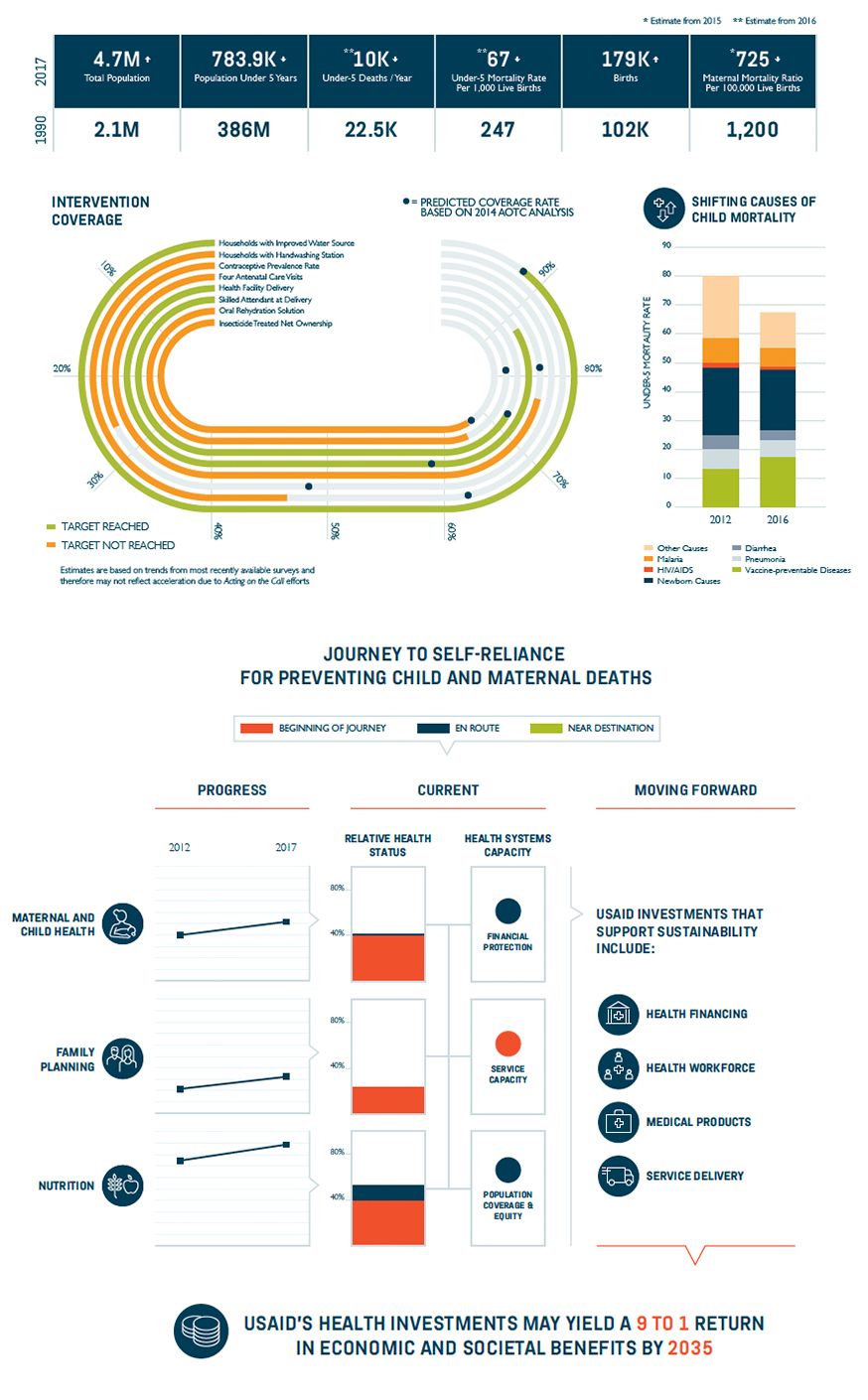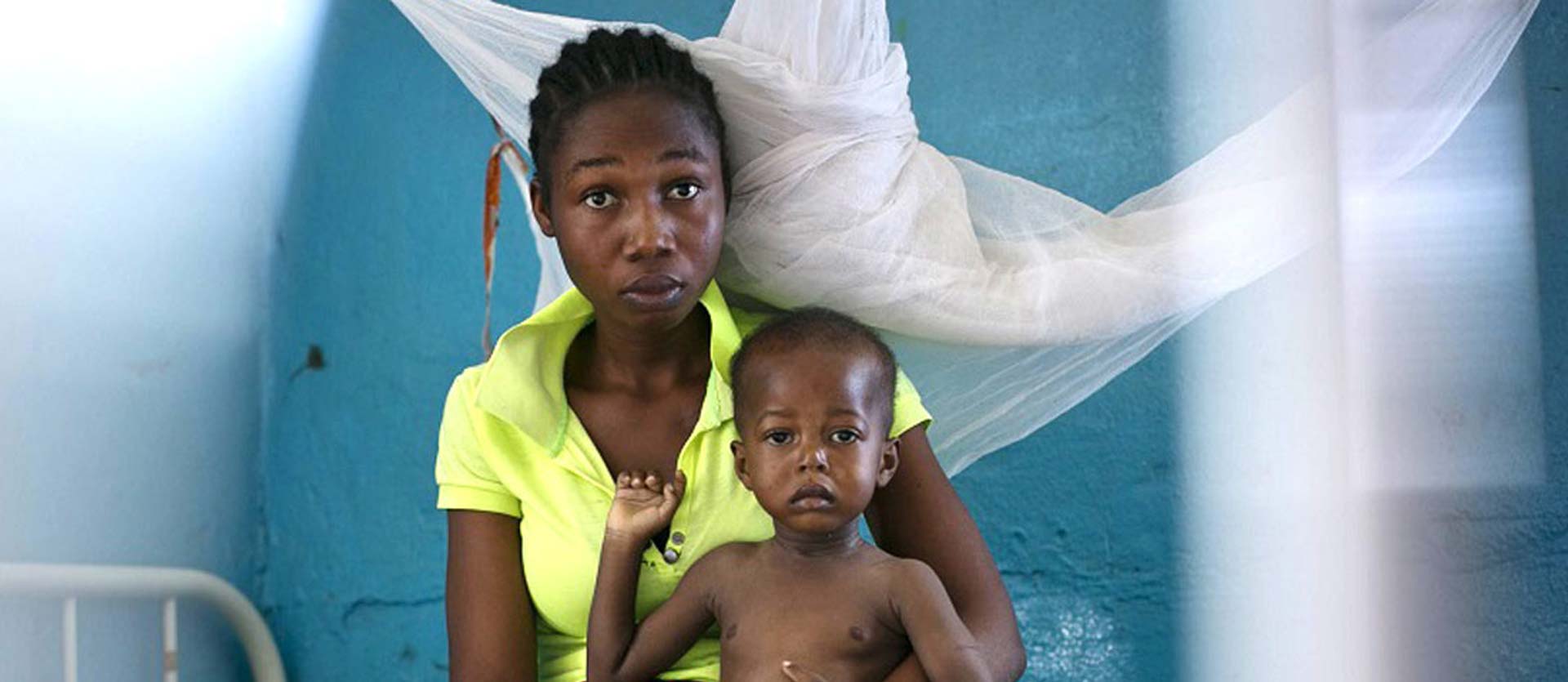Liberia
Started: March 2015 / Ended: September 2019
The Liberian health system and infrastructure suffered greatly due to the Ebola crisis and its repercussions. MCSP is helping to restore health service delivery at primary health facilities, working with the Government of Liberia to roll out infection prevention and control (IPC) trainings and protocols. Ultimately, we aim to renew the confidence of the Liberian people in the national health system, and providers’ abilities to deliver high-quality and accessible health services.
MCSP is strengthening IPC practices — and supporting the Essential Package of Health Services — at 61 target facilities in Bong, Nimba, Lofa and Grand Bassa Counties through: training; intensive supportive supervision; triage; improvement of waste management; and planning and management of essential IPC commodities and supplies. In addition to improving the country’s reproductive, maternal, newborn and child health care services, MCSP is also generating demand for these services through community level work.
In light of MCSP project achievements in Liberia, as well as the U.S. President’s Malaria Initiative’s (PMI’s) interest to expand to additional counties with support for malaria in pregnancy (MiP) and malaria case management, the Program is also executing a USAID/PMI-funded Expansion of Malaria Services project that supports national and county level efforts on MiP and case management. The project covers three southeastern counties (Grand Gedeh, River Gee and Sinoe) and two northwestern counties (Gbapolu and Grand Cape Mount).
To learn more about MCSP work in Liberia, download this infographic. To read a summary of our efforts to date, click here.
Intervention Areas:
Country Data
MCSP analyzed coverage disparities across RMNCH indicators for MCSP program countries. Click below for country-specific data.


